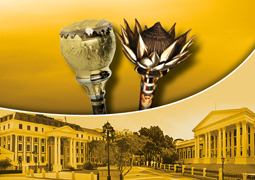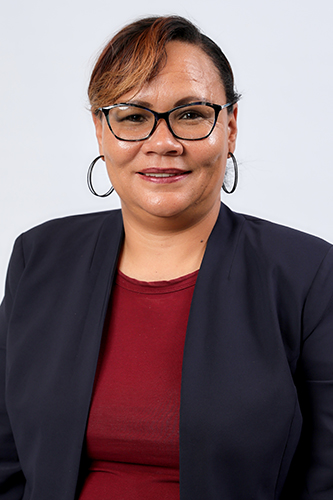
Parliament, Monday, 3 April 2023 – The Committee for Section 194 Enquiry into Public Protector (PP) Adv Busisiwe Mkhwebane’s fitness to hold office today resolved to continue with a normal committee meeting instead of the hearings due to Adv Mkhwebane’s legal fees concerns not having been resolved.
Committee Chairperson, Qubudile Dyantyi, said the enquiry has to be concluded and where there is a gap that materialised risk, it must be attended to. He assured the committee that relevant role-players were working on finding a solution for Adv Mkhwebane’s predicament. Mr Dyantyi said he has been informed about the work being done, but at that stage was not in a position to elaborate on the results but he emphasized that, that does not form part of the mandate of the committee.
This decision follows input by Adv Mkhwebane at the start of the meeting indicating that her position is still the same as last week, that the office of the Public Protector South Africa (PPSA) cannot afford to pay her legal fees at the Enquiry any longer due to financial constraints by that office. The PPSA indicated at the start of March that they will only be able to pay for Adv Mkhwebane’s legal fees until 31 March 2023, after having covered all of her costs in the Enquiry to date.
Mr Dyantyi then ruled further that it would be unfair to abandon the hearings completely or to continue with the hearings today whilst the PP’s legal team is not available due to the lack of funding. He said the committee would “step off” from the hearings and rather continue with a normal committee meeting in which the evidence leaders would take the committee through the court judgements on the two completed matters, CR17 and SARS investigating unit, as to what the committee heard of the six days of testimony by Adv Mkwebane.
Mr Dyantyi stated that the evidence leaders will not be going into the evidence per se, but rather focus on court judgements that were used during this time, helping Members of the committee to understand the full court judgments and its implications.
This approach was vehemently objected by some committee members, however, the majority of members that participated in the discussion were in favour of going ahead with the evidence leaders guiding the committee in this manner. At this stage Adv Mkhwebane also objected, claiming the process would be unfair as she will not have legal representation at the meeting. She also threatened to report evidence leaders to the Legal Practice Council.
Parliament Legal Advisor, Ms Fatima Ebrahim, reminded Members of the committee that when she presented the options the inquiry could take, she proposed three scenarios – scenario one, where they had evidence leaders, scenario two, a members only inquiry or thirdly a hybrid combination. The committee decided it would be best to have evidence leaders.
Ms Ebrahim said: “We were at pains to advise that this is not a quasi-judicial process and that the use of evidence leaders should not be seen to be an admission on our part that this is a trial of any kind or a criminal process or anything akin to that.” She reminded members that ultimately it will be the committee that must make a decision, not the evidence leaders and their role cannot be usurped.
According to her the presentation of evidence can take many formats and leading witnesses is just one way that evidence can be presented. She said it would be impossible to lead all the written evidence through witnesses, as it is thousands of pages. Regarding a question on whether the evidence leaders can lead evidence without the presence of Mkhwebane's legal representatives, she said Adv Mkhwebane will not be prejudiced as she will have at least two opportunities to respond if any of the evidence presented will be used by the committee. She stated that the role of the evidence leaders is to capacitate members and assist them in considering the motion.
The Adv Nazreen Bawa, SC, continued to take the committee through the court judgements. Adv Bawa pointed to instances where Adv Mkhwebane in her CR17 report wrote that Pres Cyril Ramaphosa “willfully and inadvertently” misled Parliament. There were also instances where the correct wording, “willfully mislead”, was used.
She further pointed out that Mkhwebane mistakenly accused the Constitutional Court of wrongly using the 2000 Executive Ethics Code, rather than the 2007 one - which she incorrectly claimed was the correct one. Adv Mkhwebane last week confirmed that the 2000 version of the Code is, in fact, the correct one.
The committee is expected to continue tomorrow. The committee was established on 16 March 2021 to conduct a constitutional inquiry into the PP’s fitness to hold office and is now expected to conclude its work towards the end of May 2023. Committee documents can be found at Committee for Section 194 Enquiry - Parliament of South Africa
ISSUED BY THE PARLIAMENTARY COMMUNICATION SERVICES ON BEHALF OF THE CHAIRPERSON OF THE COMMITTEE FOR SECTION 194 ENQUIRY, MR QUBUDILE DYANTYI.
For media enquiries or interviews, please contact the committee’s Media Officer:
Name: Rajaa Azzakani (Ms)
Tel: 021 403 8437
Cell: 081 703 9542
E-mail: razzakani@parliament.gov.za

